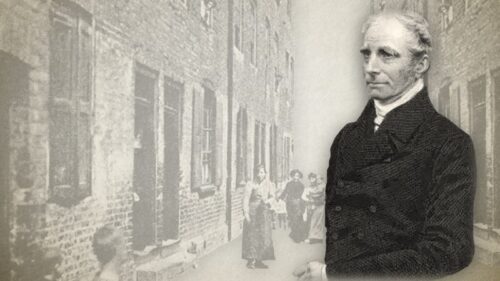
216 Socinians
SOCINIANS
A sect so called from Faustus Socinus, who died in Poland in 1604. There were two who bore the name Socinus, uncle and nephew, and both disseminated the same doctrine; but it is the nephew who is generally considered as the founder of this sect. They maintain “that Jesus Christ was a mere man, who had no existence before he was conceived by the Virgin Mary; that the Holy Ghost is no distinct person; but that the Father is truly and properly God. They own that the name of God is given in the holy Scriptures to Jesus Christ, but contend that it is only a deputed title, which, however, invests him with a great authority over all created beings. They deny the doctrines of satisfaction and imputed righteousness, and say, that Christ only preached the truth to mankind, set before them in himself an example of heroic virtue, and sealed his doctrines with his blood. Original sin and absolute predestination they esteem scholastic chimeras. Some of them likewise maintain the sleep of the soul, which, they say, becomes insensible at death, and is raised again with the body at the resurrection, when the good shall be established in the possession of eternal felicity, while the wicked shall be consigned to a fire that will not torment them eternally, but for a certain duration proportioned to their demerits.”
There is some difference, however, between ancient and modern Socinians. The latter, indignant at the name Socinian, have appropriated to themselves that of Unitarians, and reject the notions of a miraculous conception and the worship of Christ; both which were held by Socinus. Dr. Priestly has laboured hard in attempting to defend this doctrine of the Unitarians, but Dr. Horsley, bishop of Rochester, has ably refuted the doctor in his Theological Tracts, which are worthy the perusal of every Christian, and especially every candidate for the ministry.
Dr. Price agreed with the Socinians in the main, yet his system was somewhat different. He believed in the pre-existence of Christ, and likewise that he was more than a human being; and took upon him human nature for a higher purpose than merely revealing to mankind the will of God, and instructing them in their duty and in the doctrines of religion.
The Socinians flourished greatly in Poland about the year 1551: and J. Siemienius, palatine of Podolia, built purposely for their use the city of Racow. A famous catechism was published, called the Racovian catechism: and their most able writers are known by the title of the Polones Fratres, or Polonian Brethren. Their writings were re-published together, in the year 1656, in one great collection, consisting of six volumes in folio, under the title of Bibliotheca Fratrum. An account of these authors may be seen in Dr. Toulmin’s Life of Socinus.
Charles Buck (1771-1815) was an English Independent minister, best known for the publication of his “Theological Dictionary”. According to the “Dictionary of National Biography”, a Particular Baptist minister named John C. Ryland (1723-1792) assisted Buck by writing many of the articles for the aforementioned publication. One may conclude, based not only Buck’s admiration for his friend Ryland, but also on the entries in his Theological Dictionary, that he stood head and shoulders with the High-Calvinists of his day.
Charles Buck on the Biblical Covenants (Complete)
Charles Buck's Theological Dictionary





